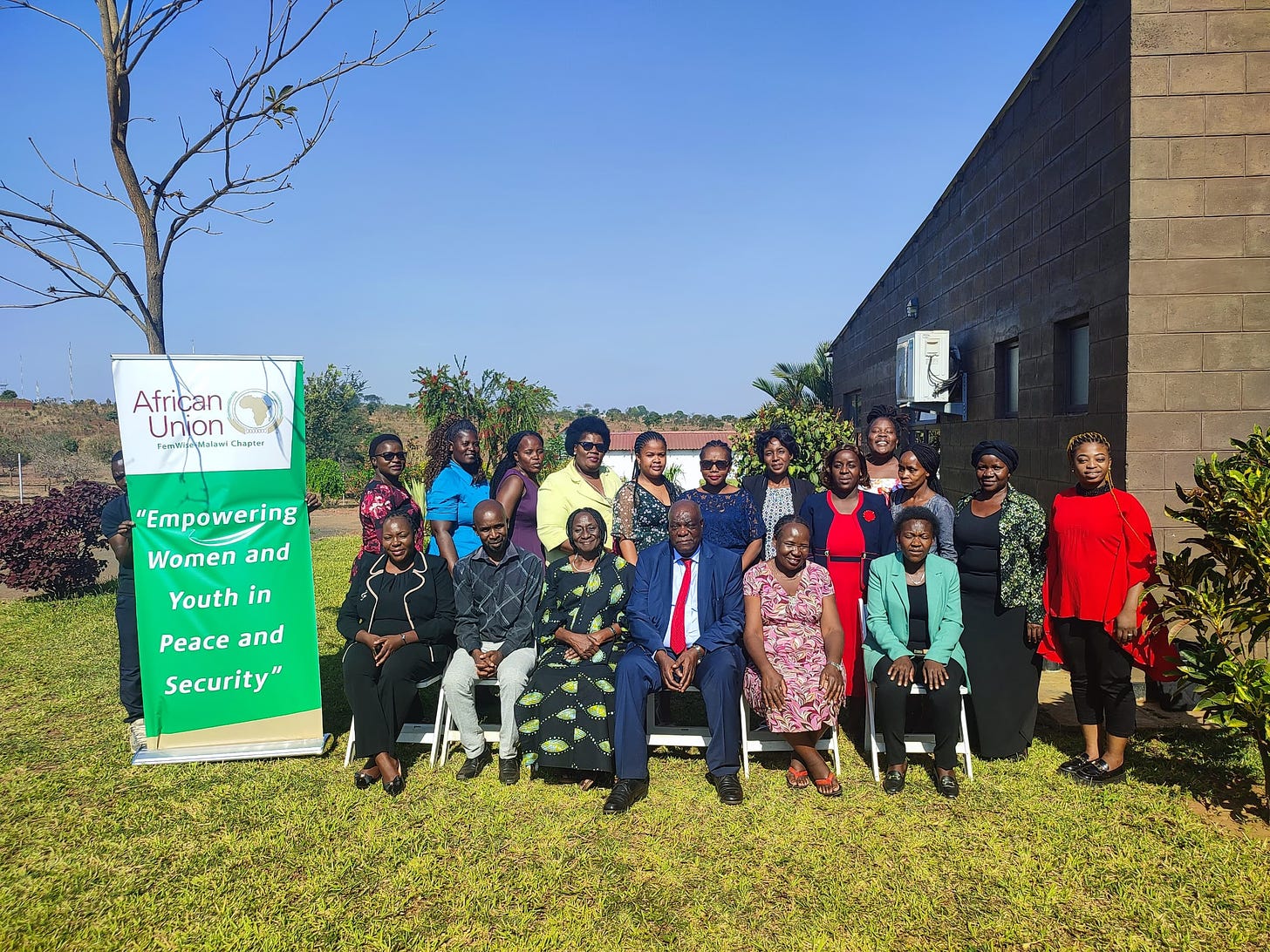Malawi Bishop: Peace Essential for Development, Women and Youth Key
The initiative aims to strengthen national peace architectures and support peacebuilding efforts in border communities while empowering women and youth as drivers of peace at the district level.
LILONGWE, Malawi— Peace is crucial for meaningful development, and involving women and youth in peacebuilding efforts is vital for sustainable growth in Malawi, a religious leader said Thursday, writes Jenipher Changwanda.
Bishop Mary Nkosi, chairperson for the Peace and Unity Commission in Malawi, made the remarks during an engagement meeting in Lilongwe.
The event was organized by the African Union Femwise-Malawi Chapter and the Catholic Commission for Peace and Justice (CCJP), along with government agencies.
"Malawi is a peaceful nation, but sometimes disagreements occur due to diverse perspectives," Nkosi said.
"At times like these, women and youths, compared to men, become more vulnerable. When conflicts erupt, they become a deterrent to peace and development."
The meeting was part of a project aimed at strengthening peace infrastructure in Malawi's borderland districts.
Nkosi expressed optimism that the initiative would help achieve goals outlined in the Malawi2063 by enhancing women's and youth's capacities in conflict prevention and peacebuilding.
"Empowering them to be on the decision-making processes in peace-building will make them have a say in conflict detection, prevention, and mediation in their communities," she said.
The project, funded by UN Women under the Peace Building Fund, is being implemented in Mangochi, Machinga, and Karonga districts.
Fletcher Mbewe, acting secretary for CCJP, said the project targets women and youth to foster their active participation in peacebuilding and conflict management.
Mable Msefula, focal person for the African Union's Femwise-Malawi Chapter, noted that the project aligns with UN Security Council resolutions on Women Peace and Security and Youth Peace Security.
"We are working together with CCJP to empower community-level structures to identify and reduce root causes of conflict and potential triggers of violence," Msefula said.
The initiative aims to strengthen national peace architectures and support peacebuilding efforts in border communities while empowering women and youth as drivers of peace at the district level.



